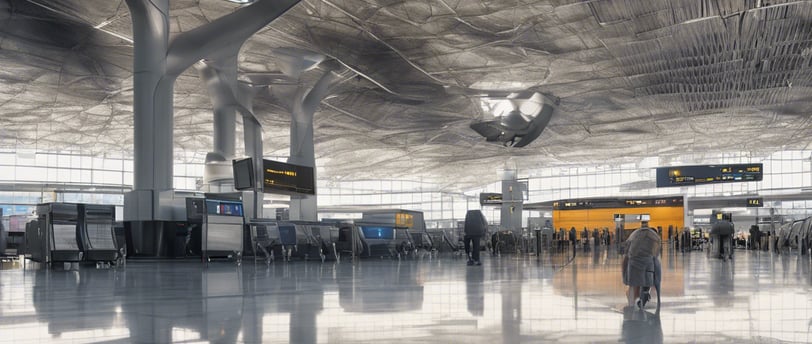Will Domestic Flights Get Canceled
Explore the factors influencing domestic flight cancellations, from weather conditions to operational challenges.
Traveling by air has become an integral part of our lives, whether for business, leisure, or connecting with loved ones. However, the uncertainty of flight cancellations looms large for many travelers, especially when planning domestic trips. Understanding the reasons behind flight cancellations and what airlines are doing to mitigate these disruptions can help travelers prepare better and manage their expectations.
Factors Leading to Flight Cancellations
Weather Conditions
One of the most common reasons for flight cancellations is adverse weather conditions. Severe weather, such as thunderstorms, hurricanes, and blizzards, can make it unsafe to operate flights. Airlines and aviation authorities prioritize passenger safety, leading to the decision to cancel flights when faced with such conditions.
Operational Challenges
Airlines face a myriad of operational challenges that can lead to cancellations. These include maintenance issues, crew shortages, and logistical hurdles. While airlines strive to resolve these issues swiftly, they sometimes result in the cancellation of flights to ensure safety and compliance with aviation standards.
Air Traffic Control Restrictions
Air traffic control (ATC) plays a crucial role in managing the flow of aircraft in the sky. ATC restrictions, often due to congested airspace or safety concerns, can force airlines to cancel flights. These decisions are made to prevent overcrowding in the sky and on the tarmac, ensuring safe and orderly flight operations.
Security Concerns
In today's world, security concerns can arise unexpectedly, leading to the cancellation of flights. Threats or incidents related to security can prompt airlines and authorities to cancel flights as a precautionary measure to safeguard passengers and crew.
How Airlines Manage Flight Cancellations
Advance Notifications
Airlines are aware of the inconvenience caused by flight cancellations. As such, they endeavor to notify affected passengers as soon as possible. Advances in technology allow airlines to send real-time updates via email, text messages, and mobile apps, providing travelers with early warnings and alternative options.
Rebooking and Compensation
When flights are canceled, airlines typically offer rebooking options to passengers at no extra cost. Depending on the circumstances and the airline's policy, passengers may also be entitled to compensation, accommodation, or meal vouchers during extended delays.
Proactive Measures
Airlines take proactive measures to minimize the risk of cancellations. These include optimizing flight schedules, maintaining a buffer in operations to absorb disruptions, and investing in advanced weather tracking and aircraft maintenance technologies. By doing so, airlines aim to reduce the likelihood of cancellations and ensure a smoother travel experience for passengers.
Conclusion
While it's impossible to guarantee that domestic flights will never get canceled, understanding the factors that lead to cancellations and how airlines manage these disruptions can help travelers navigate their journeys more effectively. By staying informed, planning ahead, and knowing their rights, passengers can mitigate the impact of cancellations and reach their destinations with minimal inconvenience.


